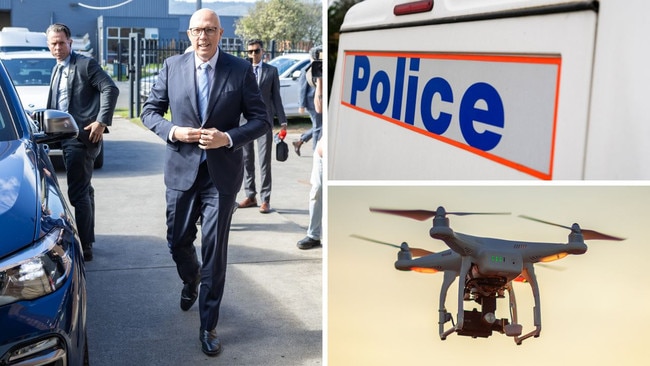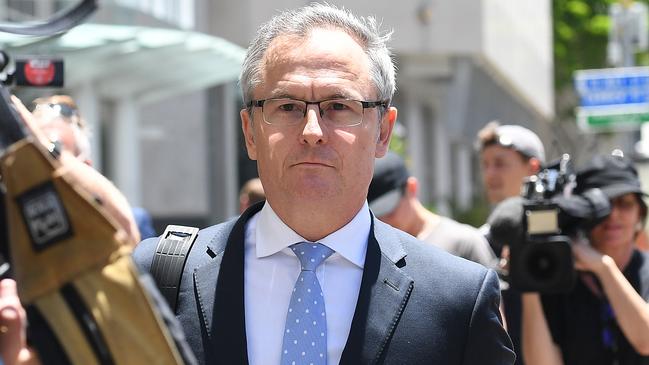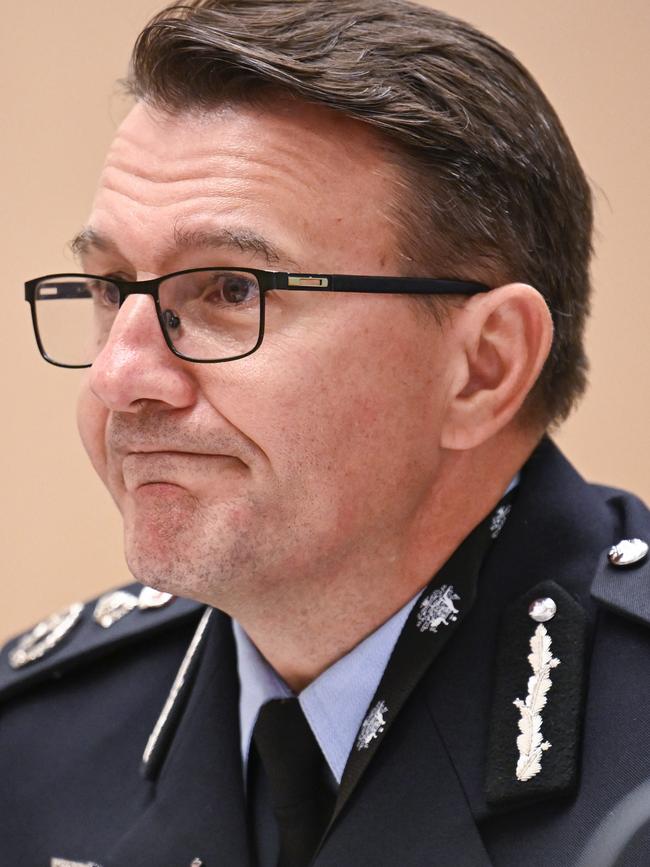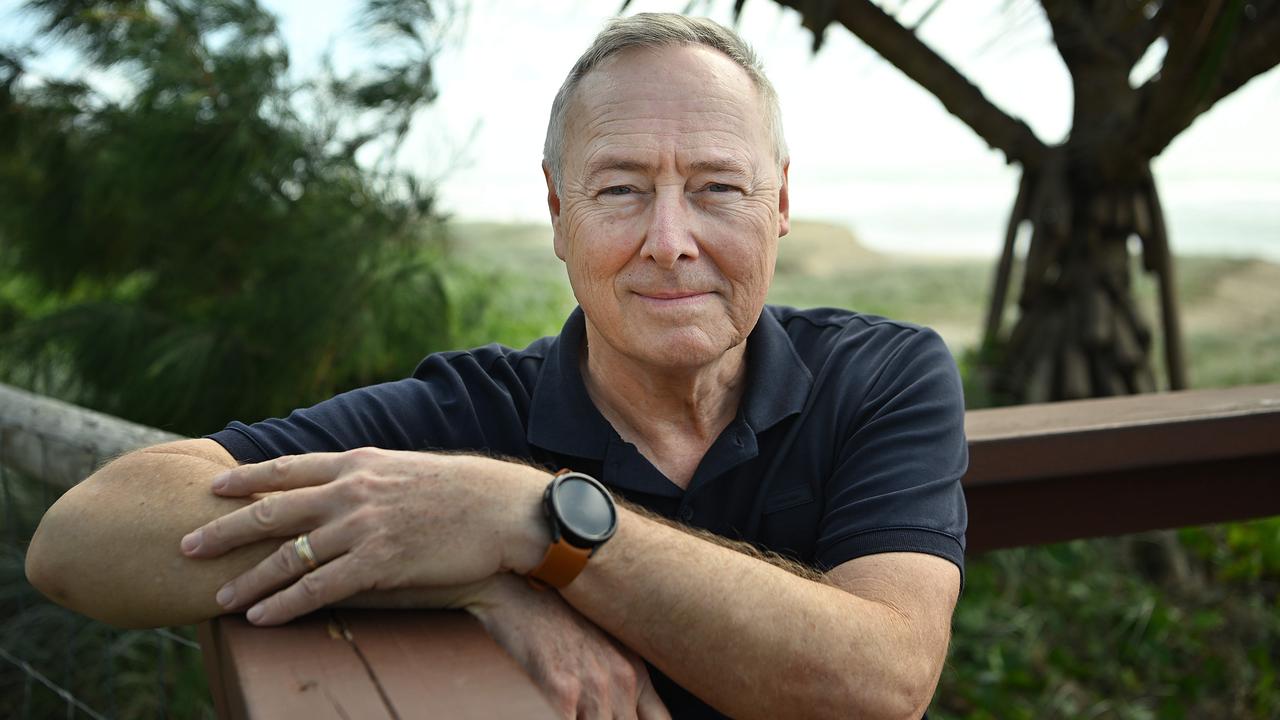Peter Dutton alleged target of Brisbane private school student’s terror plot
A student at one of Brisbane’s prestigious private schools allegedly tested ‘homemade explosives’ and planned an attack involving a drone at the Opposition Leader’s home.

Peter Dutton was allegedly the target of a Brisbane private school student charged with buying ingredients to make bombs and testing “homemade explosives” in preparation to launch a terrorist attack.
The 16-year-old, who cannot be named for legal reasons, was arrested and charged last August after a joint counter-terrorism investigation by federal and Queensland police.
Sources have told The Australian that the teenager was allegedly planning to attack the federal Opposition Leader at his home on an acreage, north of Brisbane.
The alleged plot, according to the sources familiar with the investigation, involved the use of a drone.
Queensland and federal police declined to comment about their investigation or the evidence against the teenager, who on Thursday was committed to stand trial on a single charge relating to the alleged plot.
The teenager, who attended one of Brisbane’s prestigious private boys’ schools until his arrest, has been charged with a commonwealth offence of committing acts done “in preparation for, or planning, a terrorist act”.
It carries a maximum penalty of life imprisonment if convicted.
The charge alleges the teenager researched “bomb-making instructions, purchased explosives ingredients, tested thermal chemical reactions, tested homemade explosives” contrary to section 101.6 of the Commonwealth Criminal Code. It is alleged the teenager, who has been held in custody since his arrest, planned the attack over two months, from May 21 to July 15 last year.

At a brief hearing in Brisbane’s Children’s Court on Thursday, the teenager was committed to stand trial in the Supreme Court of Queensland on the charge. No details were given during the hearing, nor in court documents, as to a target of the alleged plot.
A commonwealth prosecutor submitted a number of witness statements as part of the brief of evidence. His lawyer, Michael Cridland conceded his client had a prima-facie case to answer and consented to him being committed to stand trial before a jury at a later date.
In committing him to stand trial, magistrate Megan Power said: “Your lawyer has said there is enough evidence in the paperwork that has been provided to me to justify you going on trial in a higher court, the Supreme Court.”
When asked if he would like to say anything in answer to the charge or enter a plea, the teenager, who appeared by video link from a detention centre, responded: “No, I do not wish to enter any plea.”
Later asked by Ms Power if he had any questions about the proceedings, he responded: “No, thank you”.
His lawyers did not make an application for bail. Both his parents attended the hearing.
At his first court appearance last year, a media application to report on the proceedings was refused by Ms Power. At the time, it was reported that Mr Cridland opposed the application submitting his client had mental health issues.
Mr Cridland submitted that the boy would be “particularly vulnerable” if any information was made available to a media organisation.
“The risk of prejudice … far outweighs any public interest there is in the media covering these proceedings,” Mr Cridland told the court.
At the time, Ms Power refused the application citing a risk of prejudice to the teenager because having an extra person in court could make him uncomfortable. She noted the Children’s Court was “generally a closed jurisdiction”. “There are good reasons for that, Mr Cridland has pointed that out, those reasons from a youth justice principles particularly in respect of criminal matters,” she said. “In this matter, which involves a 16-year-old young person, who I am told and without challenge accept that suffers particular vulnerability … there is a risk of prejudice to him.”

Permission was given to the media to cover the hearing on Thursday.
When first contacted by The Australian late last year, that he was the target of the alleged plot, Mr Dutton said he was not aware of the allegation. It is understood he has since been made aware he was the target of the alleged plot.
On Thursday, a spokesman for Mr Dutton said he could not comment.
Earlier this year, The Australian made application to the Children’s Court for access to the case file, which was granted on Wednesday.
Mr Dutton has been under heavy personal police protection for years. When the teenager was first arrested, the Australian Federal Police said there was no current threat to public safety.
Threats against federal politicians and dignitaries have nearly doubled in the past two years, with Australian Federal Police commissioner Reece Kershaw recently warning of a rise in offenders “who are quickly willing to use violence to further their cause”.
Giving evidence to a Senate estimates hearing in March, Mr Kershaw said politicians were being targeted “across the political spectrum” because of their comments in the media and positions on policy.
The number of threats and reports to the AFP of harassment, nuisance and offensive communications climbed from 555 in the 2021-22 to 1009 in 2023-24, Mr Kershaw said.




